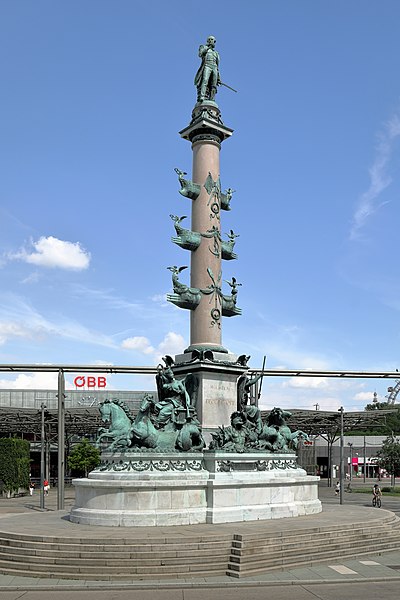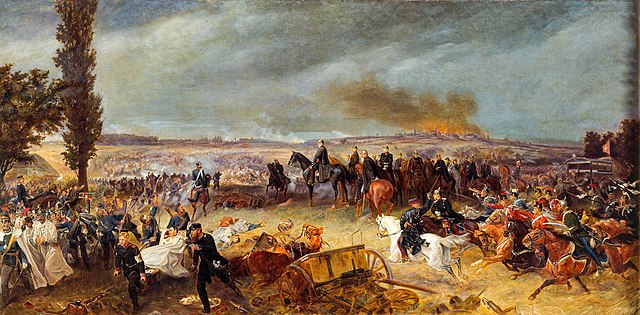Wilhelm von Tegetthoff was an Austrian admiral. He commanded the fleet of the North Sea during the Second Schleswig War of 1864, and the Austro-Prussian War of 1866. He is often considered by some Austrian historians to be one of the most adept naval officers of the 19th-century, due to his tactical inventiveness, sense of command, and inspirational leadership.
Wilhelm von Tegetthoff, litography by Joseph Kriehuber, 1866
Tegetthoff (centre) at the Battle of Lissa, painting by Anton Romako, 1880
Memorial to Tegetthoff in Vienna
The uniformed portrait of the Admiral Tegetthoff on the obverse of the 1877 medal by Tautenhayn, commemorating his monument at Pula
The Austro-Prussian War, also by many variant names such as Seven Weeks' War, German Civil War, Brothers War or Fraternal War, known in Germany as Deutscher Krieg, Deutscher Bruderkrieg and by a variety of other names, was fought in 1866 between the Austrian Empire and the Kingdom of Prussia, with each also being aided by various allies within the German Confederation. Prussia had also allied with the Kingdom of Italy, linking this conflict to the Third Independence War of Italian unification. The Austro-Prussian War was part of the wider rivalry between Austria and Prussia, and resulted in Prussian dominance over the German states.
Battle of Königgrätz, by Georg Bleibtreu. Oil on canvas, 1869
Movements of the Prussian Army near the Main river
The memorial to the Battery of the dead in Chlum (modern Czech Republic) commemorates some of the heaviest fighting during the Battle of Königgrätz.
Prussian Prince Friedrich Karl is cheered on by his troops.








